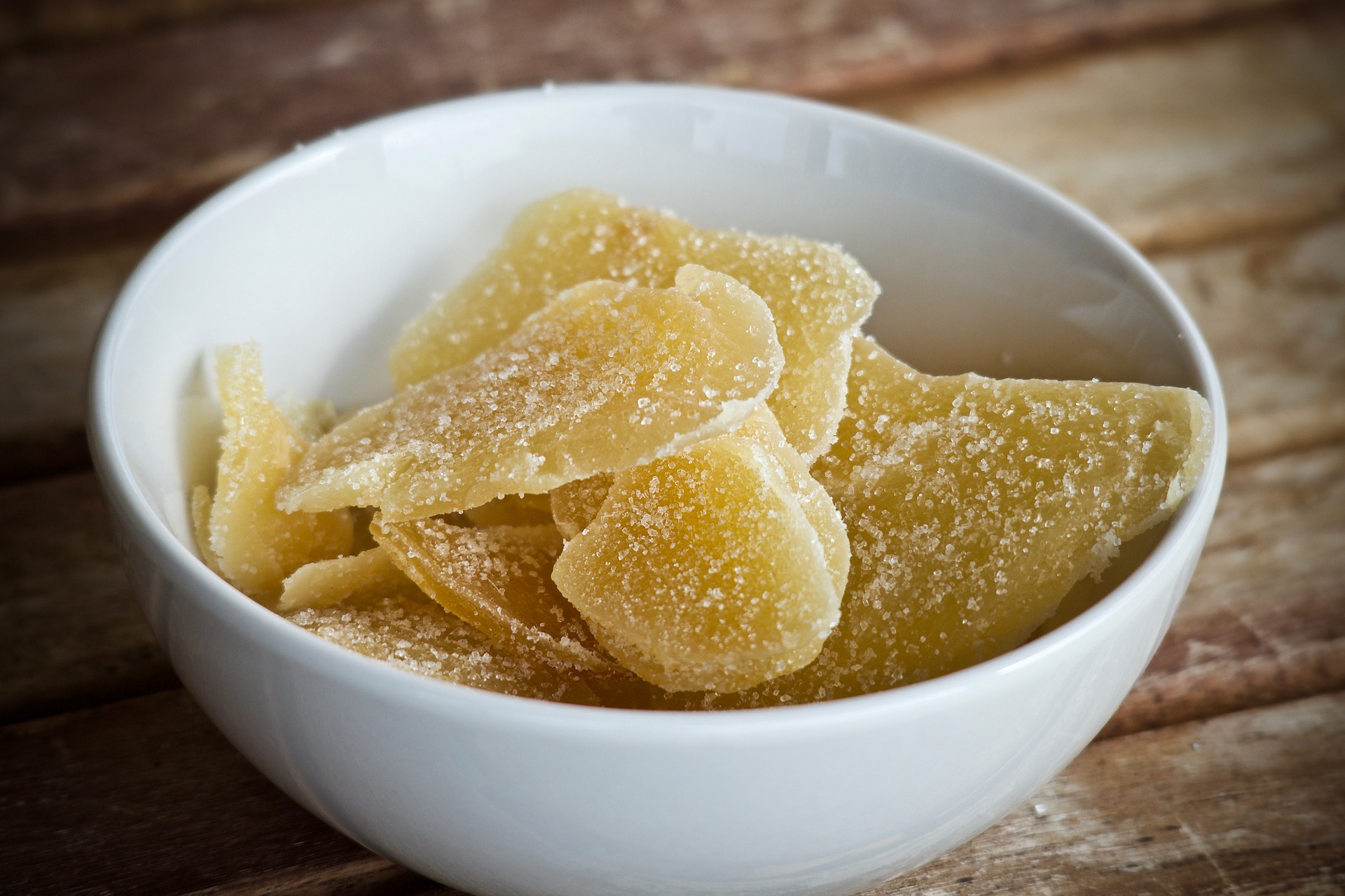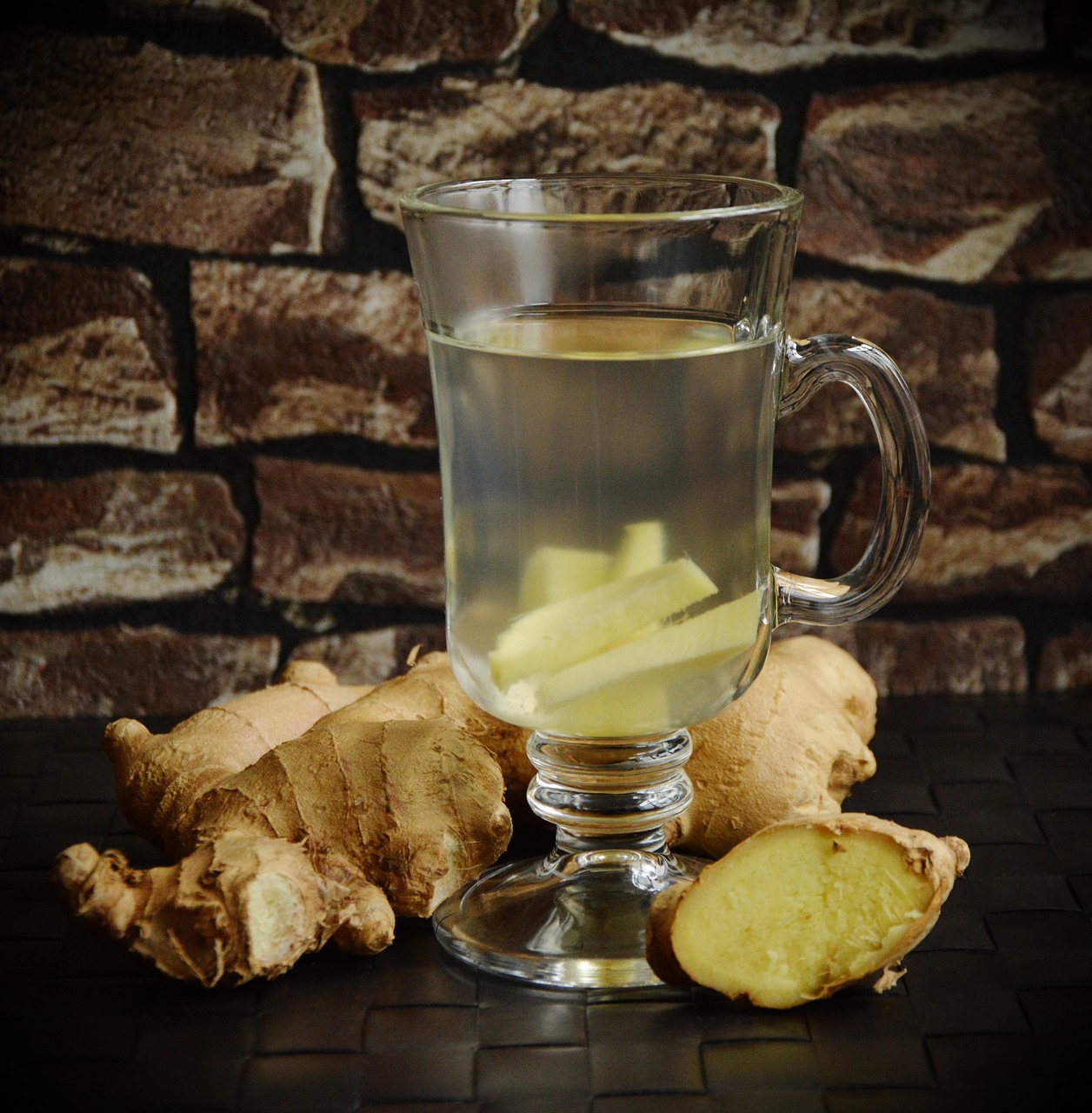Ginger and Ayurveda
When it comes to spices recommended by Ayurveda, ginger tops the list! In all of its forms (fresh root and dry), ginger has been hailed "the universal medicine," in keeping with its Sanskrit form Vishabhesaj, meaning universally beneficial. Known for its sharp yet sweet aroma and taste, ginger's value goes far beyond the kitchen. It takes front-and-center in Chinese medicine for promoting good digestion, and as an ancient Indian proverb declares: "Everything good is found in ginger."
How Ginger Aids Digestion
A tenet of Ayurveda is that a strong digestive system is fundamental to good health and wellness. Ginger not only stimulates digestion, but it clears blocks and congestion by stimulating digestive enzymes and hydrochloric acid, helping transform gross food mass into a finer essence. By breaking down food and unclogging circulatory pathways, ginger makes nutrients more bio-available to targeted body parts.
In addition to stirring up digestive fires and aiding in the transportation and absorption of nutrients, ginger's warm, pungent nature also whets the appetite! For these reasons, Ayurveda texts (sutras) have long recommended eating fresh ginger before meals (except in the case of Pitta elevation, when the use of ginger root is contraindicated).
Healing Effects of Ginger
The therapeutic benefits of ginger, championed by Ayurveda, have now been recognized by modern medicine as well, which confirms and endorses ginger's effectiveness for:
- Improving digestion
- Improving circulation
- Preventing motion sickness and airsickness
- Thwarting nausea and vomiting
- Providing an analgesic effect for joint pain
- A panacea for common colds and coughs
- Treating early stages of rheumatoid arthritis
- Helping eliminate wastes
How to Eat Ginger
Every Ayurvedic medicine chest should include ginger! The following are some ways to consume ginger in its raw (root) and dry forms.

Raw Ginger
- Dip a few slices of ginger in salt and lime juice and consume before mealtime
- Add a few slices of raw ginger to your stew or vegetables while they cook
- Sauté some grated ginger in a tablespoon of ghee; add to desserts or to warm milk

Dry Ginger
Dry ginger is hotter than its fresh counterpart and is often used to heal conditions such as:
- Phlegm and mucus in the lungs
- Coughing, common colds/flu
- Wheezing
- Asthmatic conditions
Ayurveda and Trikatu
If you are sensitive to burning sensations or have a weak digestive system, try Trikatu, the famous Ayurvedic remedy which you can buy in tablet form. It is comprised of a mixture of black pepper, long pepper, and dry ginger.
- Administer Trikatu to children and adults who frequently suffer from colds/the flu, ear infections or bronchitis, or who have a weak digestive system. The pungent qualities of Trikatu's ingredients stimulate digestion, increase nutrient absorption, improve metabolic function, and support the respiratory system.
- You can make Trikatu yourself by grinding fresh ginger in a food processor and by grinding some long and black pepper in a spice or coffee grinder. Mix together an equal part of each of the three spices. Add a spoon of raw honey and enjoy after meals!

Ayurveda and Ginger Tea
The spicy, aromatic ginger root has been used for millennia in making tea. Ginger tea's healing effects, recognized throughout the ages by Ayurveda, are now being verified by modern medical research. Studies at the University of Maryland's Medical Center, for example, cite gingerols and shogaols (pungent phenol compounds and volatile oils) as ginger's strengths, while ginger tea has been found to contain trace elements of multiple nutrients and high levels of amino acids and Vitamin C.
Therapeutic Benefits of Drinking Ginger Tea
Researchers have confirmed the following therapeutic benefits and healing attributes of ginger tea:
- Stimulates the appetite
- Aids in food digestion
- Enhances circulation
- Increases gastric juice production
- Alleviates stomach pain
- Alleviates irritable bowel syndrome
- Reduces joint inflammation
- Reduces arthritic inflammation
- Eases menstrual discomfort
- Reduces stress
Ginger Tea for Your Dosha
If you have a Vata body type, the heating qualities of ginger tea can aid in balancing your dosha as it improves all phases of the digestive cycle: digestion, absorption, elimination. Ginger tea will also warm your typically cold body during cold weather when Ayurveda recommends that you sip ginger tea throughout the day.
If you are a Kapha, Ayurveda recommends drinking ginger tea before each meal or 2-3 cups daily in order to fire-up your normally slow digestion and stimulate your taste buds.
If you are a Pitta, consume ginger tea in moderation as large amounts can cause you to overheat when your dosha is out of balance. Note that a cup of fresh ginger root tea is ideal for warming up cold bodies during the winter and chilled, wet bodies after a summer swim or surf.
How to Make Ginger Tea
To help you maximize the benefits of your Ayurvedic lifestyle, here is a recipe for making fresh root ginger tea:
- Place fresh ginger slices or a spoonful of diced fresh ginger in 12 ounces of water
- Boil
- Steep until cool
- Enjoy!
- Optional: Sweeten with raw honey
The verdict is in: Ayurveda and ginger are a match made in heaven!
Subscribe to Yoganosh
Get the latest posts delivered right to your inbox
